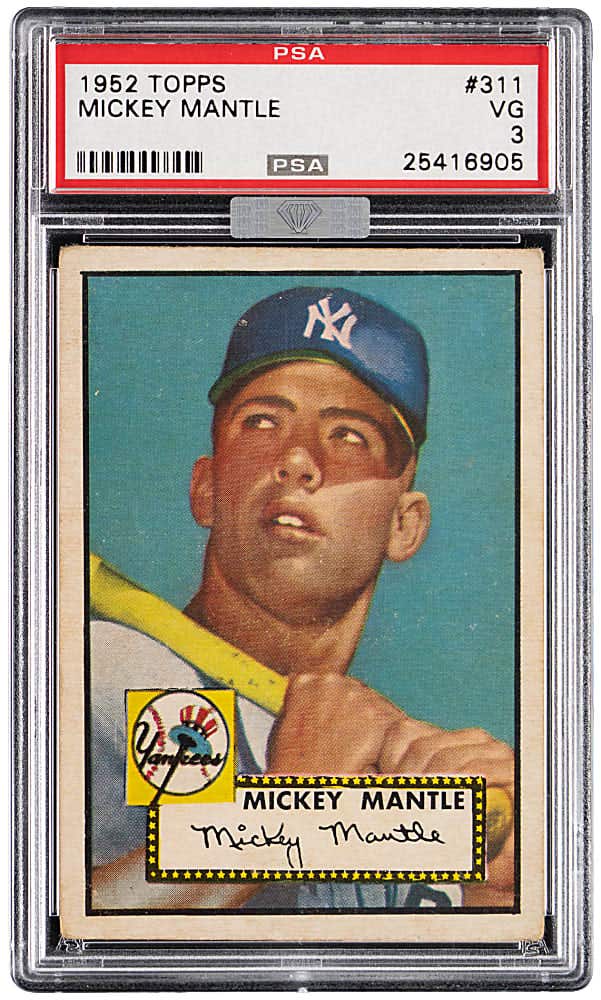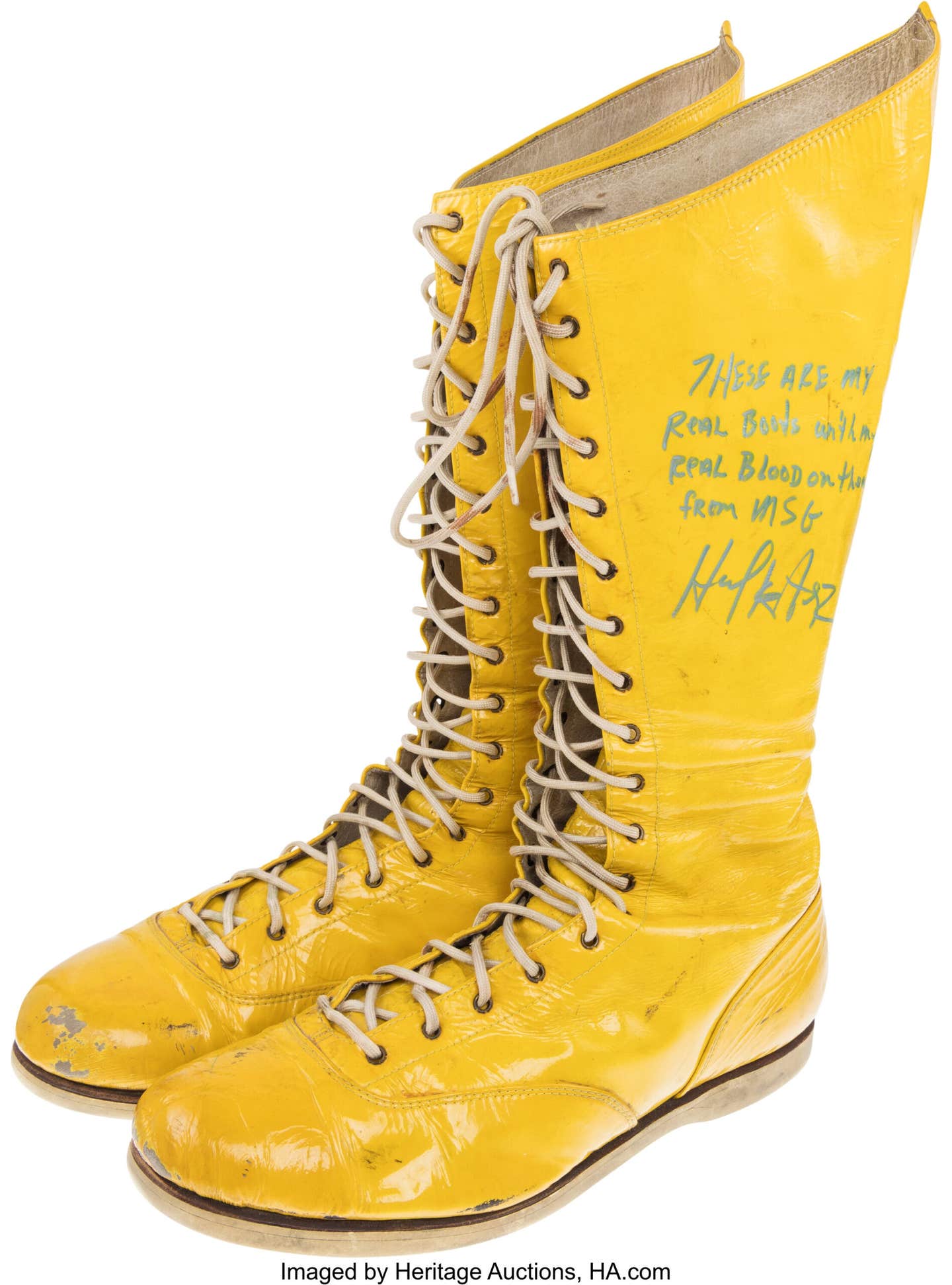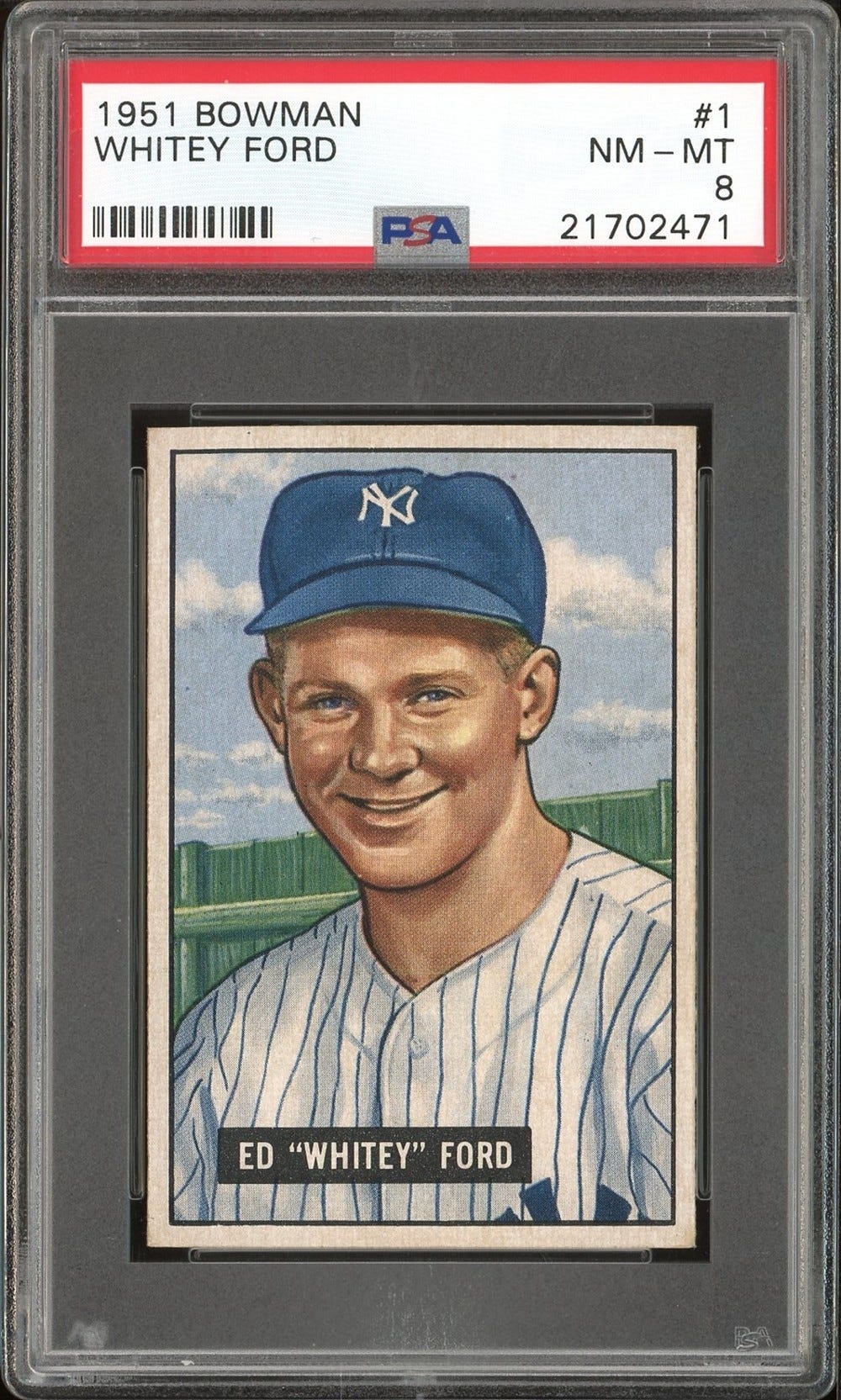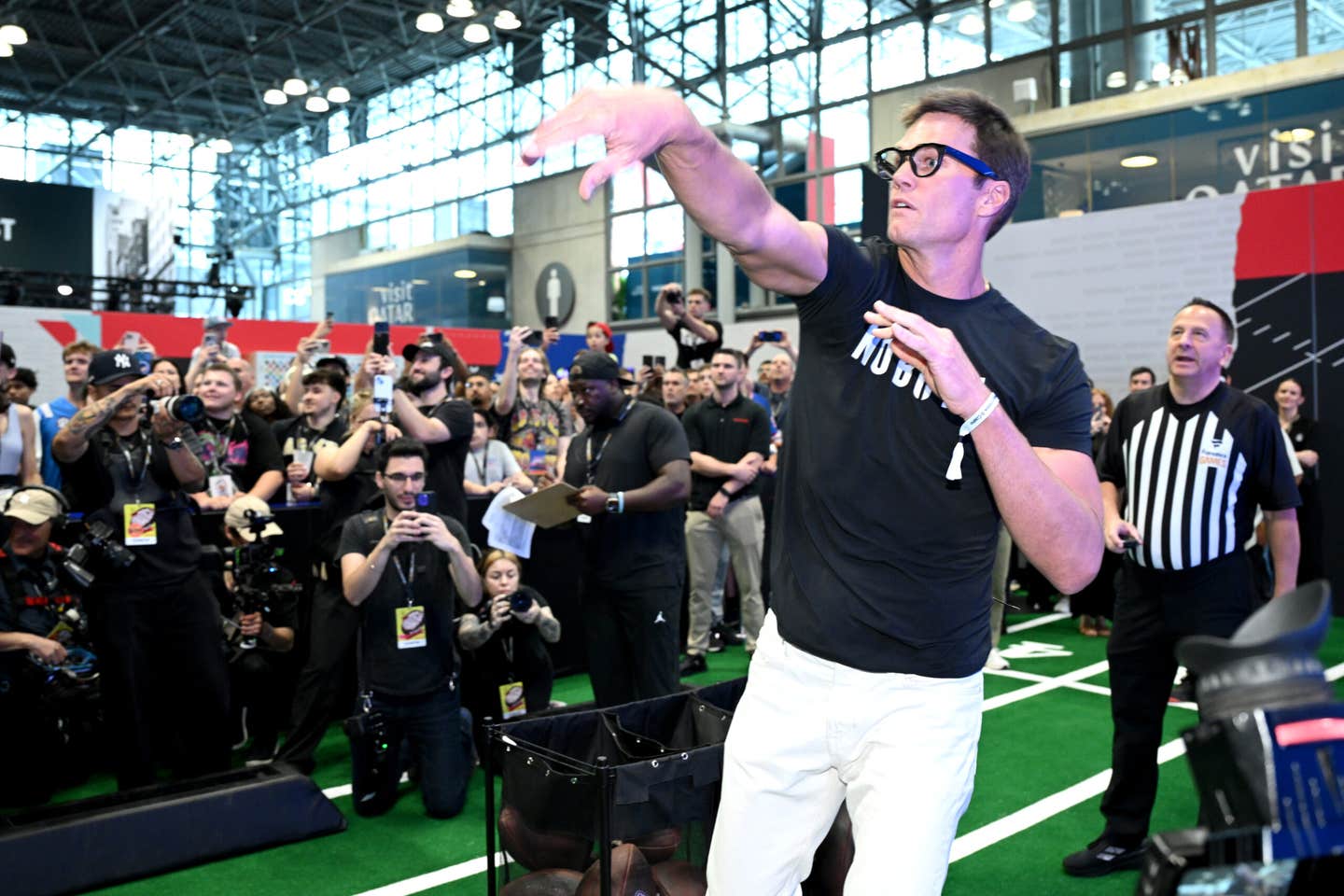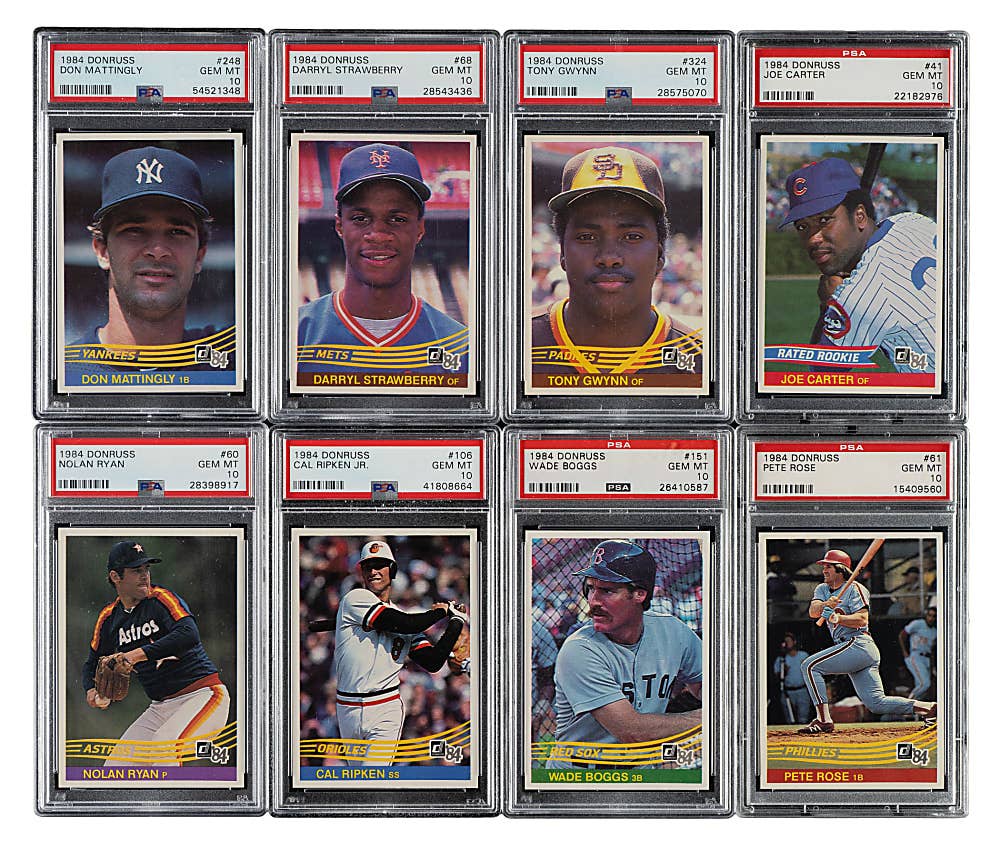Collecting 101
Attendance, enthusiasm highlight trade conference
The 22nd Hawaii Trade Conference/Mainland Edition took place last month in Fort Lauderdale with its largest attendance total in several years and - perhaps more importantly - a changing view of where the sports collectibles industry is headed.
The mainland location likely played a factor in the conference attracting more than 305 attendees from all levels of the industry (the largest overall attendance in more than six years) and more than 130 hobby store representatives from around the U.S. and Canada (the largest number of retailers to ever attend the conference). And while there were a handful of hot-button issues that retailers wanted addressed by licensors and card manufacturers, there was a much more apparent sense of retailers looking for ways to work with manufacturers and licensors to maintain the increases in sales that most stores have enjoyed over the past year.
"I think there's more excitement than usual among the retailers," said Florida retailer Alan Narz, who also conducted a Topps-sponsored retailing seminar to begin the conference. "For the most part, a lot of these stores are coming off a great year and they're happy with the promotions being offered by the licensors and manufacturers. Last year, when people said there would be TV advertising for baseball cards, a lot of people rolled their eyes and said, 'Yeah, right.' This year, there's no skepticism. They know that kind of advertising is coming again. So there's a lot more optimism about what's being done to help the retailers."
Steve Wrate, owner of All-Star Sports in Chattanooga, Tenn., attended his first conference since 2001 and said there was a noticeable difference in the tone coming from retailers. "I definitely picked up a sense that people are more optimistic and there's a belief that the industry may have turned just a bit," Wrate said. "There are still some issues to be worked out, such as the lack of communication from the companies about production delays and where we're headed in terms of distribution. But there certainly isn't that sense of 'fix this or else' like I saw in the past."
The industry was able to point to a number of encouraging trends that have taken place in the sports collectibles hobby over the past year - beyond the improving economic fortunes of various participants.
"We stopped the bleeding in the last year and a half," said John Buscaglia, VP of sales for Topps. "A few years ago, when I walked out of hobby stores I was very concerned about the trends and what was happening. Now when I go and visit stores, the professionalism is at an all-time high. I'm amazed at the creativity that's going on."
Doug Allen, president of Mastro Auctions, said the vintage collectibles market is not only enjoying steadily increasing values for memorabilia, but it's also seeing a trend toward younger buyers. "About 10 years ago, the hobby was getting older," Allen said. "Now, buyers are getting younger.
There's a true appreciation for the history and investment potential."
Mike Anderson, VP of sales and marketing for Donruss Playoff, said the hobby is doing more to promote itself now than it has during his 28 years in the industry. He also said his company has found the hobby's history is playing a role in its current success. "History is a way to help bridge the gap between the generations," Anderson said.
The NHL's Dave McCarthy stressed the value of the global marketplace for the NHL, extending beyond the traditional mom-and-pop stores, especially with so many international players. "With the growing global marketplace, we're not limited to just the local store customers," McCarthy said. "It's certainly a growing trend that a lot of our retailers are taking advantage of."
Still, the industry realizes it has not fixed everything that needs fixing.
Colin Hagen, who oversees licensing for trading cards and other hard goods for MLB Properties, said that while the industry has clearly evolved from the unsophisticated "easy money days" of the early 1990s, there are some clear shortcomings. He said technology is "woefully lacking" because of the inability to accurately tally the number of existing card stores and obtain sales data from those stores. "This must be rectified so everyone has the information necessary to grow the business," he said.
Daryl McKay, president of Sports Images and a veteran of nearly two decades in the wholesale business, said retailers need to worry less about offering the lowest price and look for ways to offer a fun collecting experience. "Promotion and marketing will be much more of a factor in the future" than the number of hits in a box, McKay said.
McKay also said that if retailers want a successful retail store, they now have the tools available to make that happen because of the many promotional programs now available from licensors and manufacturers. Customers need to be entertained by their hobby, and hobby stores have the best opportunity to provide that experience, McKay said.
Richard McWilliam, founder and owner of Upper Deck, offered a candid assessment of ways his company had not been doing all it can to make customers happy. Saying that his company needs to do more to guarantee customer satisfaction when buying from Upper Deck, McWilliam outlined 10 goals he is putting in place to improve the buying experience for collectors and retailers alike.
"We want to optimize the customer's experience," McWilliam said. "We know we have tried like hell to do this but have failed in a lot of different areas."
Heading McWilliam's priority list is dramatically reducing the number, and turnaround time, for redemption cards. "We've reduced the number of (outstanding) redemptions by 50 percent over the past three months, and we want to be down another 50 percent after the next three months," McWilliam said. "If we can't deliver the redemption, we will offer another option in a very short time."
Next on the list is to ship the company's card products on time. "We ship more products late than we do on time," McWillliam said, noting some products have shipped as much as three months late. He also promised the company would improve its communication with retailers to keep them better informed about new products, enhance the perceived value of products and continue to make collecting relevant to kids through content as well as marketing programs.
Nearly 20 years after the company's debut in the card market, McWilliam said he will remain very involved in the company's direction because, "I'm here for the long term." He said he'd like to eventually turn the company over to his son, but since his son is only 4 years old, "I'll be here to grow this industry."
There were a handful of newsworthy announcements during the conference. For instance, the MLB Players Association announced that the number of baseball card sets it will license for 2008 will be reduced from 40 to 34 (17 each for Topps and Upper Deck).
Meanwhile, the NFL confirmed it has renewed its trading card licensing agreements with Topps, Upper Deck and Donruss Playoff. There had been talk at the end of last season that the NFL and the NFL Players Association were exploring the possibility of eliminating one of the card licensees, but both agencies decided to stay with the three manufacturer arrangement.
There were also some athlete appearances at the conference. Donruss Playoff brought top NFL prospect and former University of Miami tight end Greg Olsen to a reception it hosted as part of the conference registration session on April 15. Olsen signed free autographs and posed for photos while wearing a Donruss jersey.
Olsen's appearance at the Donruss Playoff reception was just his second autograph signing session. "I haven't had much exposure to the collectibles market prior to this," he said. "It's interesting to learn how it works. I wasn't a big collector growing up." Also appearin g courtesy of Donruss Playoff was another former Hurricane, linebacker Jon Beason, who signed free autographs April 21 at the card show that wrapped up the week's activities. "This is another way for us to introduce the hobby to a great player from this year's talented draft class," said Donruss Playoff marketing/PR director Scott Prusha.
Former major league pitcher Tommy John spoke to conference attendees on April 17. John talked about his career that spanned 26 seasons but was almost cut short by an elbow injury. John was the first player to ever undergo ulnar collateral ligament reconstruction, a procedure that is known today as Tommy John surgery.
John said the surgery and the time he spent recuperating made him appreciate the game more. He also told the retailers in the audience that his approach to pitching can be applied to any business that's going through some tough times.
"If you're not getting the results you want, you must adjust and adapt," John said. "Don't be afraid to change your roadmap."
Also appearing at the conference was New Orleans Saints wide receiver Marques Colston, who appeared April 17 at a breakfast co-sponsored by NFL Properties and NFL Players Inc. Colston talked about his successful rookie season, and how excited he was when he saw his first NFL trading card. "It was a special moment," Colston said.
Next year's conference will continue its mainland presence and is scheduled for April 13-17 at the San Marcos Golf Resort in Phoenix.
"When we first asked people in the industry about locations on the mainland for this event, the two most suggested locations were Florida and Arizona," said Jeff Pozorski, sports group publisher for F+W Publications.
"Obviously, the turnout for this year has been tremendous and considering how many people have told us they'll be returning next year, I would imagine we'll have an even stronger conference."



